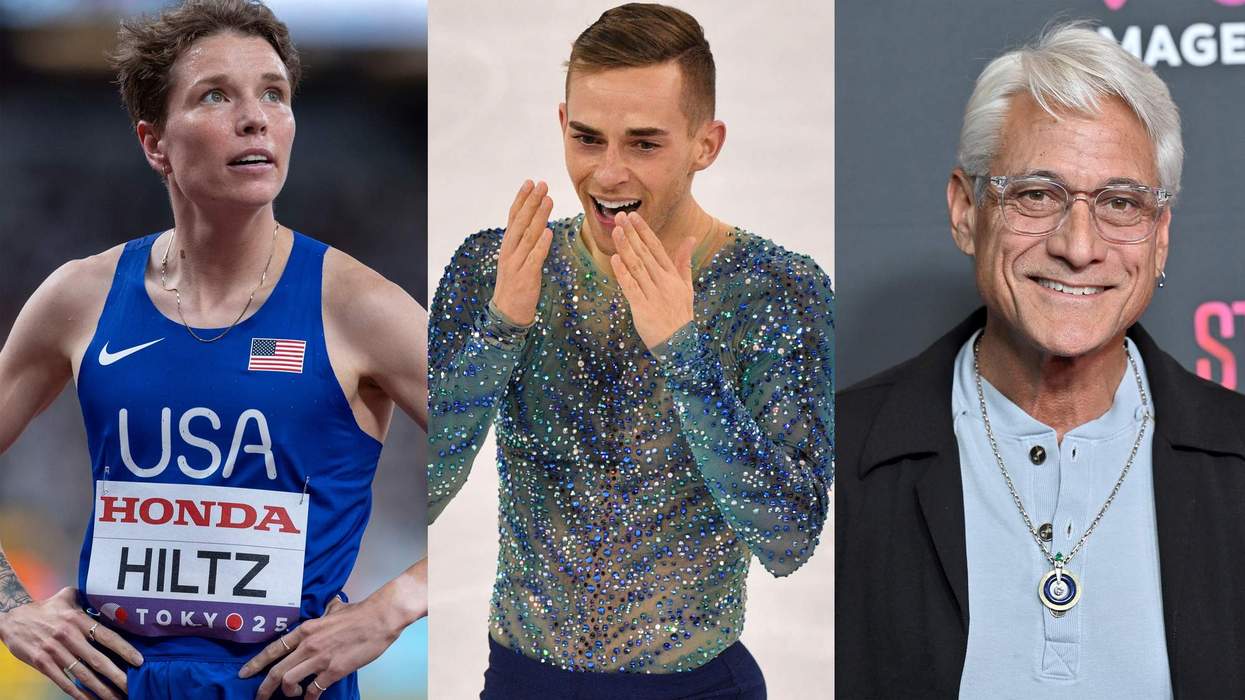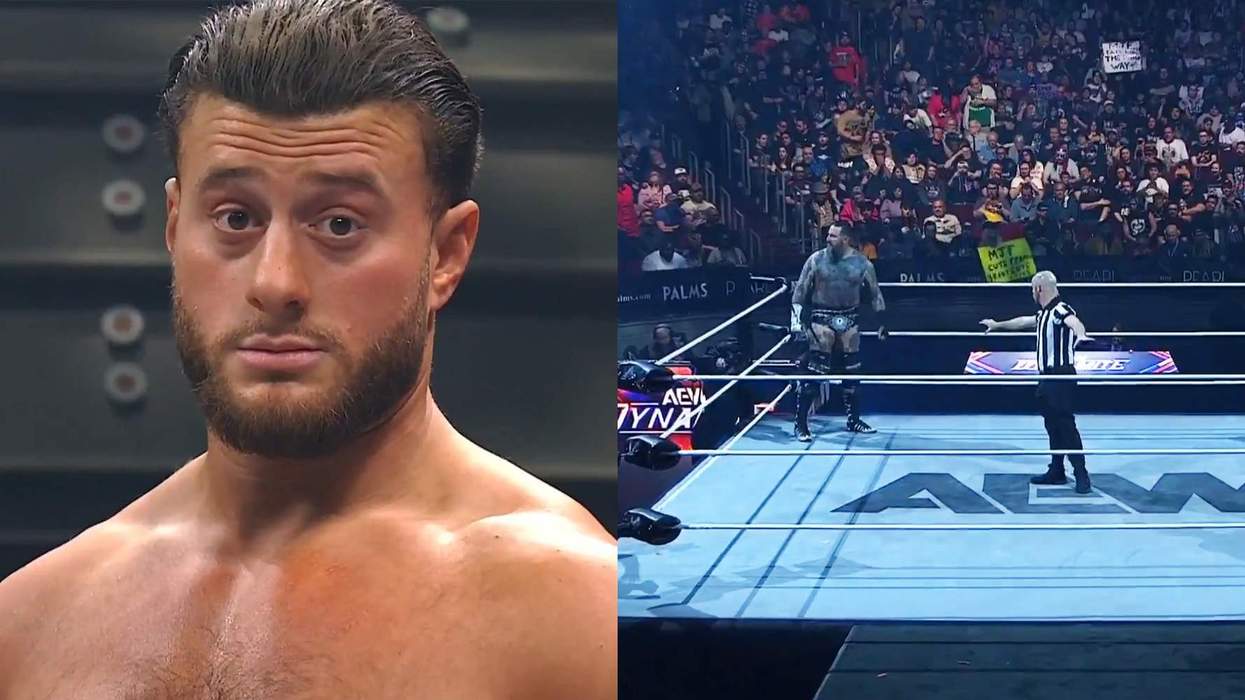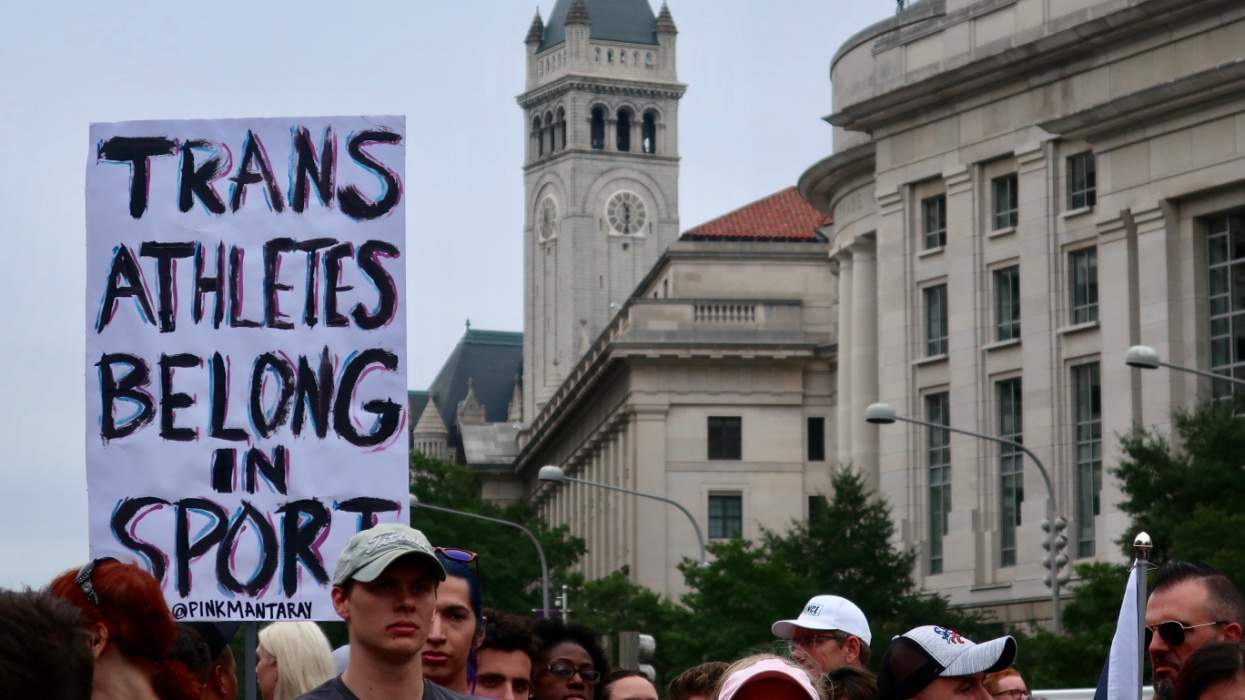Women's professional tennis is coming to grips with one of the most unusual cases in its 36-year history: an intersex player competing on the tour.
Sarah Gronert, a 22-year-old German, was born with both male and female characteristics. Gronert, who had surgery at 19 and is legally a woman, has been cleared by both the International Tennis Federation (ITF) and the WTA Tour to compete -- unlike male-to-female transsexual Renee Richards, who was forced to sue to secure the right to play on the women's tour in the 1970s. "It's a one-of-a-kind case," says out lesbian Martina Navratilova, an 18-time Grand Slam singles champion who now comments for cable outlet the Tennis Channel.
An ITF spokesman confirmed by e-mail that Gronert "is legally and biologically a woman and entitled to play on the ITF and WTA professional circuits." The ITF oversees the four Grand Slams and tournaments that fall below the main WTA circuit. A WTA official said the tour became aware of Gronert's case last spring and conducted a review with a medical delegate during the summer and fall of 2008. Gronert requested the review, the official said.
Under its bylaws, the WTA can question the eligibility of a player and require gender verification to determine sexual status. "The rule is designed to recognize the verified and legitimate gender of individuals, while also minimizing any gender-related advantages," said tour spokesman Andrew Walker. "Under this rule, Gronert is eligible to compete on the tour as a female."
Gronert has enjoyed moderate success this season, winning two ITF titles. This week, Gronert, who has earned less than $7,500 in prize money, is at a career high ranking of 574, some 180 places above where she finished in 2008.
Much remains unclear about Gronert's past and she has declined to speak to the media. The details of her case and the player's medical records are confidential, Walker said. Gronert could not be reached through the ITF, which declined to provide additional information. A spokesman for the German Tennis Federation said Gronert does not want to discuss her "personal background."
According to intersex expert Heino Meyer-Bahlburg, an intersex condition covers a wide spectrum of possible manifestations that generally reflect some kind of congenital anomaly. "There are many different conditions and many different hormonal pictures," says Meyer-Bahlburg, a professor of clinical psychology at Columbia University.
For instance, a person could be biologically male in terms of chromosomes, gonads, and sex hormones but be completely androgen-resistant -- meaning the body does not respond to male sex hormones -- so that the child is born with female-looking external genitalia and at puberty has little or no secondary hair and develops breasts. The other extreme, says Meyer-Bahlburg, could be someone who is internally female (with a uterus, ovaries,and vagina) but has developed external genitalia that are male-like from exposure to male sex hormones during fetal development. "Then you have all kinds of conditions in between," he says.
Neither the ITF nor the WTA say they have received any direct complaints about Gronert. But her presence on the tour has stirred some controversy, prompting at least one person to make disparaging comments. Schlomo Tzoref, the coach of a player beaten by Gronert at an event she won in Israel, said: "There is no girl who can hit serves like that, not even Venus Williams," according to the New York Daily News .
"When I heard her story, I was in shock," he added. "I don't know if it's fair that she can compete or not. She does have an advantage, but if this is what the WTA have decided, they probably know best. If she begins to play continuously, within six months she will be within the top 50."
At the Sony Ericsson Open last week in Key Biscayne, Fla., players grappled to put the unusual situation in perspective. Most said it was hard to comment since they had never seen or heard of Gronert and weren't familiar with either intersex people or the WTA's rules regarding gender verification. "It's hard to judge," said third-ranked Elena Dementieva of Russia.
A few shared concerns that they might be at a disadvantage against someone who benefited from different muscular, hormonal, or skeletal development. "If there is a big difference in the muscle structure and the body structure and if you see she is dominant over the rest of the girls, then we might have a little issue," said 10th-ranked Nadia Petrova. "But I think we all should have a chance to do what we do. I think it's fair enough if she's been approved by the WTA and ITF. Why not give her the green light?"
Others simply empathized with her situation. "It's a difficult situation as a human being," said former number 1 and out lesbian Amelie Mauresmo of France. "Good for her to make the choice about how she feels inside. For me that's the main thing for me -- to feel good about herself."
Some observers suggested that as long as Gronert wasn't winning big titles or taking large chunks of prize money that her case would remain relatively uncontroversial. But that smacked of a double standard.
"As long as she maintains her place at the end of the pack, it's OK," said tennis historian Bud Collins, who has covered tennis since the 1960s. "There would be an uproar if she were to become a champion." Collins added that if she's been cleared to play, "then you have to live with it."
According to Meyer-Bahlburg, it's nearly impossible to say if Gronert would have an advantage or disadvantage without knowing more about her specific condition. "In theory, yes, she could," he said, "but normal male and females vary so much that unless one knows what the person was before and their hormone history, it's difficult to say if they have an undue advantage."
If nothing else, Gronert's case opens a new can of worms for the sport. Navratilova competed against Renee Richards -- formerly Richard Raskind, who underwent a sex-change operation and began competing in her 40s -- in the 1970s and was later coached by her. She said it's a "loaded" situation.
"You don't know if it's an advantage or not," she says. "It might not be a level playing field if you need to take hormones to be a full-on woman." Navratilova stressed that "if she thinks she's a woman, then she is a woman to me."
Gronert's case is clearly different from Richards's. Tennis authorities tried to bar Richards from playing when she first began competing, but she sued and the New York supreme court ruled in her favor. Richards reached a ranking of number 20 and made the doubles finals at the U.S. Open in 1977.
In an e-mail, Richards wrote that competitive sport requires a "level playing field, juniors against juniors, seniors against seniors, men against men, women against women." She added that the judge in her 1976 case rightly opined that future cases should be treated on an individual basis and that her case should not be viewed as precedent-setting.
"He did this mainly because of my age -- 41 -- knowing that I was not going to take all the prize money away from Chrissie, Tracy, Martina," wrote Richards, who is a practicing ophthalmologist in New York City. "Since that time, whenever I have been consulted, I always hark back to his decision, and then warn that someday a good player, 22 years old, would come along and dominate the game. Has that happened now? I have warned about this for years."
Richards has always maintained that she sued not to further her tennis career but simply to continue competing. She said a transsexual or intersex person that had male development to some degree past puberty could have an advantage over genetic women in terms of bone mass and muscle size that was not completely undone by surgery. "Now, whether she dominates the field or not remains to be seen. How well does she play? How much stronger is she than the other players her age?" she wrote.
TV commentator Pam Shriver, who played against Richards, said the game probably needs to make space for Gronert. "This person has to be able to sit somewhere in life," said the tennis hall-of-famer. "I can't see her playing on the men's tour. If she has female equipment, I don't think she can be banned."















